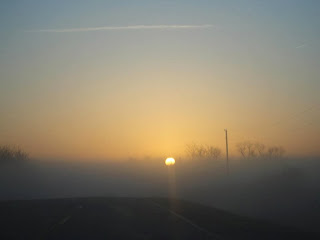David overheard Vera talking with one of her friends and, as the topic revolved around marriage and anniversaries, she made the comment that she never wanted to be engaged. She made the statement that if a reasonable looking fellow showed up with a license and the next day was New Year's day, she might just consider getting married, because then if he forgot the day, at least she would have reason to celebrate anyway.
Being small town, South Dakota in the depression, much of the entertainment for the young crowd included spending time together in the evenings, talking, dancing, and catching a movie when one could afford to. David and Vera had spent several such evenings together, but no formal discussion of marriage had ever come up.
Vera was working as a teacher's aid in the local school and bringing in $6.25 per week at the worst of the depression. That small salary is what kept her parents, sisters and brother from going hungry. David worked on the family farm doing what he could to help provide a living for his family, but the times were so bad that typically only one person in a family or couple were allowed to have a job in order to ensure more jobs to go around within the community.
As the fall wore on and slowly turned into winter, David was busy repairing the family car - a Nash coupe and decided to take it for a drive on Saturday, December 31st.What thoughts must have occupied David's mind during that snowy drive on solitary country roads, one can only surmise - 'height of depression, maybe it would be better to wait until times improved, but then again, when you are at rock bottom there isn't anywhere to go but up, I love her but will that be enough to sustain us, or will I even be able to make a living for them?' It was forty miles later, in Faulk county, in the county seat of Faulkton, when he bought a marriage license for $2 and then purchased a ring at the drug store. Another forty mile drive home again with as many thoughts and fears to occupy his mind, and he tucked the license and ring into a safe hiding place - in the handhold of one of the monocoupe airplanes in the hanger.
 |
| Vera and David with their first born son (my uncle) |
Sunday, January 1st 1933, after lunch, David asked his dad if he had any money he could borrow. His dad gave him two dollars….all that he had with him. With the little money that David had saved and the $2 from his dad, he picked up
Vera in his 1926 green Chevy coupe and they lit out for Faulkton. They had to keep the marriage a secret because they knew that if the school district found out that Vera was married, she would loose her job. They were married by the minister with his two children standing in for witnesses. David had planned to pay the minister $5, but realized that the amount of money he had was pretty slim. He paid him $4 instead and then they went for hot beef sandwiches and a movie in Highmore before heading home for the night. When all was said and done, they had $1 left to start a marriage on.
 They kept their marriage a secret until May and on the last day of school, Vera skipped out and left a note saying she would accept the last day of school off as a wedding present. David and Vera left that night for the Black Hills, their honeymoon and many happy years of marriage. Those two young people were my paternal grandparents whose sense of optimism and adventure in the face of a depression have left inspiration in their wake for all of their descendants to come. They were together for 72 years….that may have been the best $4 investment grandpa ever made.
They kept their marriage a secret until May and on the last day of school, Vera skipped out and left a note saying she would accept the last day of school off as a wedding present. David and Vera left that night for the Black Hills, their honeymoon and many happy years of marriage. Those two young people were my paternal grandparents whose sense of optimism and adventure in the face of a depression have left inspiration in their wake for all of their descendants to come. They were together for 72 years….that may have been the best $4 investment grandpa ever made.



